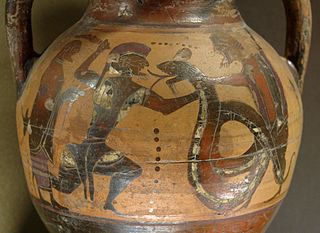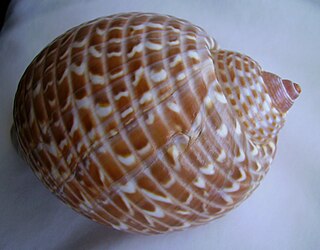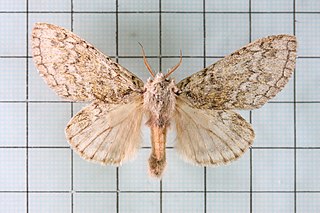
In Greek mythology, Daedalus was a skillful craftsman and artist, and was seen as a symbol of wisdom, knowledge, and power. He is the father of Icarus, the uncle of Perdix, and possibly also the father of Iapyx, although this is unclear. He invented and built the labyrinth for king Minos of Crete, but shortly after finishing it king Minos had Daedalus imprisoned within the labyrinth. He and his son Icarus devised a plan to escape by using wings made of wax that Daedalus had invented. They escaped, but sadly Icarus did not heed his father's warnings and flew too close to the sun. The wax melted and Icarus fell to his death. This left Daedalus heartbroken, but instead of giving up he flew to the island of Sicily.

Partridges are medium-sized non-migratory birds, with a wide native distribution throughout the Old World, including Europe, Asia, and parts of Africa. They are sometimes grouped in the Perdicinae subfamily of the Phasianidae. However, molecular research suggests that partridges are not a distinct taxon within the family Phasianidae, but that some species are closer to the pheasants, while others are closer to the junglefowl.

The grey partridge, also known as the English partridge, Hungarian partridge, or hun, is a gamebird in the pheasant family Phasianidae of the order Galliformes, gallinaceous birds. The scientific name is the Latin for "partridge", and is itself derived from Ancient Greek perdix.
Talos was a mythological Greek inventor. He is probably Perdix and nephew of Daedalus. On some accounts, Talos was also called Attalus.

The Daurian partridge is a gamebird in the pheasant family Phasianidae of the order Galliformes, gallinaceous birds. The name derives from the Dauria region of Russia.

The Tibetan partridge is a gamebird in the pheasant family Phasianidae of the order Galliformes. They are found widely across the Tibetan Plateau and have some variations in plumage across populations. They forage on the ground in the sparsely vegetated high altitude regions, moving in pairs during the summer and in larger groups during the non-breeding season. Neither males nor females have spurs on their legs.

The snow partridge is a gamebird in the pheasant family Phasianidae found widely distributed across the high-altitude Himalayan regions of India, Pakistan, Nepal and China. It is the only species within its genus. The species is found in alpine pastures and open hillside above the treeline but not in as bare rocky terrain as the Himalayan snowcock and is not as wary as that species. Males and females look similar in plumage but males have a spur on their tarsus.
Polycaste is the name of several different women in Greek mythology:

Tonna perdix, common name the partridge tun, is a species of very large sea snail, a marine gastropod mollusc in the family Tonnidae, the tun shells.
Partulina perdix is a species of tropical air-breathing land snail, a terrestrial pulmonate gastropod mollusk in the family Achatinellidae. This species is endemic to Maui, Hawaii in the United States.

Greek mythology is the body of myths originally told by the ancient Greeks. These stories concern the origin and the nature of the world, the lives and activities of deities, heroes, and mythological creatures, and the origins and significance of the ancient Greeks' own cult and ritual practices. Modern scholars study the myths in an attempt to shed light on the religious and political institutions of ancient Greece and its civilization, and to gain understanding of the nature of myth-making itself.

Norse mythology is the body of myths of the North Germanic peoples, stemming from Norse paganism and continuing after the Christianization of Scandinavia, and into the Scandinavian folklore of the modern period. The northernmost extension of Germanic mythology, Norse mythology consists of tales of various deities, beings, and heroes derived from numerous sources from both before and after the pagan period, including medieval manuscripts, archaeological representations, and folk tradition.
Myth is a folklore genre consisting of narratives or stories that play a fundamental role in a society, such as foundational tales or origin myths. The main characters in myths are usually gods, demigods or supernatural humans. Stories of everyday human beings, although often of leaders of some type, are usually contained in legends, as opposed to myths.

Perdicinae is a subfamily of birds in the pheasant family, Phasianidae, regrouping the partridges, Old World quails, and francolins. Although this subfamily was considered monophyletic and separated from the pheasants, tragopans, junglefowls, and peafowls (Phasianinae) till the early 1990s, molecular phylogenies have shown that these two subfamilies actually constitute only one lineage. For example, some partridges are more closely affiliated to pheasants, whereas Old World quails and partridges from the Alectoris genus are closer to junglefowls.

Perdix, Pennsylvania is a village between the Susquehanna River and Cove Mountain in Penn Township, Perry County. U.S. Route 11/15 passes through the village, which uses the Duncannon zip code of 17020.

Syntypistis perdix is a species of moth of the family Notodontidae. It is found in China, Taiwan, India, Nepal, Thailand and Vietnam.

Architectonica perdix, common name the partridge sundial, is a species of sea snail, a marine gastropod mollusc in the family Architectonicidae, the sundials.














